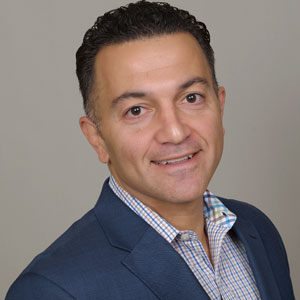By Clode Moradi, MSPFP, CFP®, FBS®

How Can This Be:
Generally, savvy active investors acquire the ability to “look” beyond the present moment fear and try to instead focus on what things would look like in the near future. I believe that is what’s going on right now. Currently investors are pricing in a lot of optimism. What warrants some caution is the fact that just because someone has the ability to look forward, does not mean that they have the ability to predict the future. This is important to understand because forecasting the future is, at best, an educated guess. Investors pull a lot of their reactions based on historical data, but by the time most general investors react, the markets have already priced in those factors. It’s almost like, if you can think of it, it’s already been done.
Also, there’s no running away from human biases that predispose everyone to come up with their own story of what things will look like. This including experts who give forecasts. That is one of the reasons why markets are so difficult to understand and predict in the short term.
Uncertainty and Inflated Optimism
Currently, there are too many uncertain variables that are stacked on top of each other. For example, investor sentiment has been that businesses will receive aid to push through and recover from COVID-19 related losses. However, there are many issues with this kind of optimism.
- Other than PPP, EDIL, and other aid available now, we don’t know yet exactly what will be available in aid for the next 12 months.
- Many businesses will not make it through to receiving aid (whatever that may be).
- Will businesses who make it through and receive aid (other than PPP) be required to hire as many employees as they had pre COVID-19, or will this aid go towards leaning out the companies and creating higher profits for a few, while others lose their jobs?
- Even if supply chains are back to normal, will demand go back to normal, or will the psychological aftermath of COVID-19 playout over a longer period of time?
- What will happen to schools and how will working parents juggle their kids new education protocols and work. Will parents want to send their kids to a school that forces them to wear a mast, eat lunch in class, and stay away from their friends?
- How will all the forbearance and forgiveness plans affect the lending markets? Having low interest rates is of no use to a public that cannot get approved for a loan.
- On top of everything happening, elections are coming up. Historically, the first two years of a term don’t perform as well as the last two.
There are a number of other factors, but you get the point…
Short Term
I’m not giving advice on what you should do short term because what makes advice right or wrong depends on your unique goals and situation. But in general, shorter term, active investors may want to take these things into consideration. In other words, make sure to practice due diligence, not just on the market, but on your own psychological predispositions as well.
Long Term
Long term investors may benefit from current volatility and uncertainty. It would be important to review your portfolios and cash flow more regularly, but long investors may in fact be better served as seeing short term volatility as a positive factor. Staying on course with consistent and scheduled investments may benefit patient investors in their overall long-term results.
Lastly, your investment “returns” should not be defined as simply your annual rate of return. Rather, I propose each individual look at how money can be leveraged to increase their rate of life satisfaction. This can be achieved through a person’s ability to make and use money to meet the goals that are most important to them. Being able to do this requires every individual to make the efforts necessary to achieve a kind of self-awareness that goes beyond trying to forecast markets.
 Clode Moradi, MSPFP, CFP®
Clode Moradi, MSPFP, CFP®
Clode is an independent Certified Financial Planner™ and has a Post-CFP® Masters Degree in Advanced Personal Financial Planning, from Kansas State University, one of the most prominent financial planning universities in the nation. He graduated at the top of his class with a 4.0 GPA and was awarded a nomination and acceptance into the honorary society of Phi Kappa Phi to represent the importance of higher education in the Financial Planning industry.
Clode specializes in taxation, retirement, and investment planning as they relate to personal goals and quality of life. He also holds a Graduate Level Certification in Financial Therapy, and has written extensive research articles on financial topics such as goal based portfolio construction, how to define “financial success”, money psychology and its manifested human behaviors, and various other topics related to finance, taxation, and human behavior as they relate to one’s quality of life. Clode also has a Bachelor’s Degree in Personal Financial Planning, where he graduated Summa Cum Laude from Franklin University of Ohio. He is an active member of the Financial Planning Association and Financial Therapy Association.
Clode is the founder of Brilliant Financial Strategies, LLC. He started in the financial industry more than 20 years ago and created BFS as a platform to offer financial planning at a much deeper level. Clode feels that Financial Planning needs to break out and surpass the status quo. “Our job is to help clients make use of their financial potential to build a meaningful life”.
He enjoys spending quality time with his wonderful family. Clode’s hobbies include saltwater fishing and Brazilian Jiu-Jitsu. Clode is the creator of a group called Kool Kids Fish that introduces kids and their parents to the hobby of fishing, as a means of spending quality time together. Clode also coaches a kids Jiu-Jitsu Competition class at Gracie Barra La Canada-Flintridge, where he works with kids and teens that compete in Jiu-Jitsu tournaments nationally. One of his most valued personal accomplishments is receiving his brown belt in Brazilian Jiu-Jitsu from ADCC world champion Orlando Sanchez of Gracie Barra.
Clode’s approach to life, money, and financial planning is to create quality of life through balance and honest self-reflection. He believes that abundance can only have value when there is balance in one’s household, family, and internal being. He brings this approach to all aspects of life.
Disclaimers
This article is for reference and informational purposes only and does not provide tax, legal, or accounting advice. It is for guidance only and not a substitute for the user seeking personalized financial planning and professional advice. It is not intended to provide, and should not be relied on for, investment, tax, legal or accounting advice. You should consult your own financial, tax, legal, and accounting advisors before engaging in any transaction.

